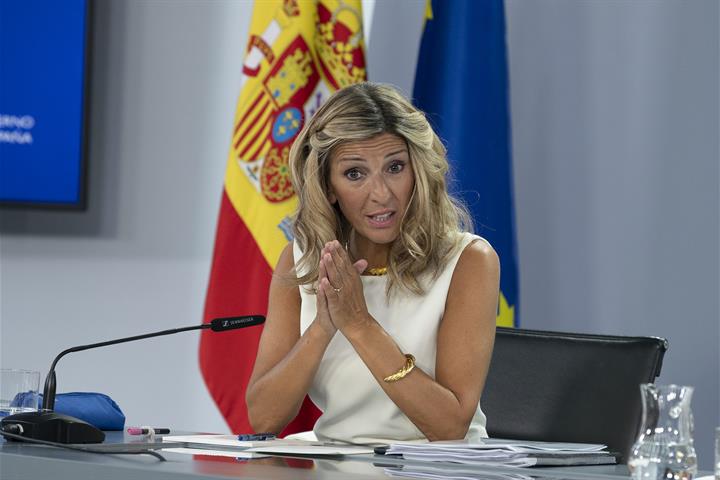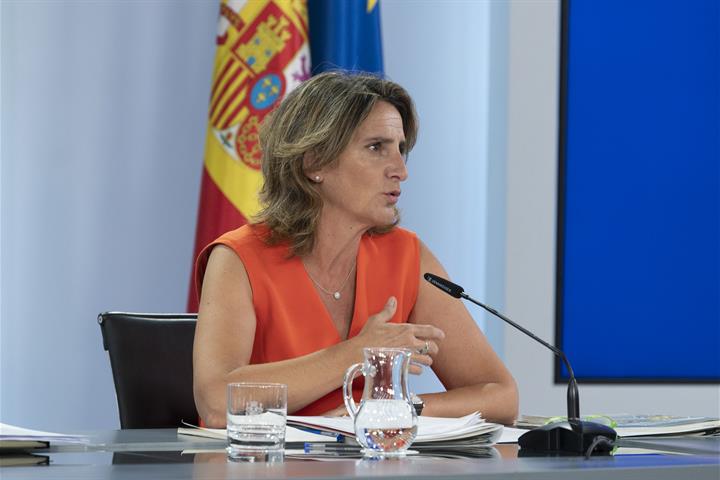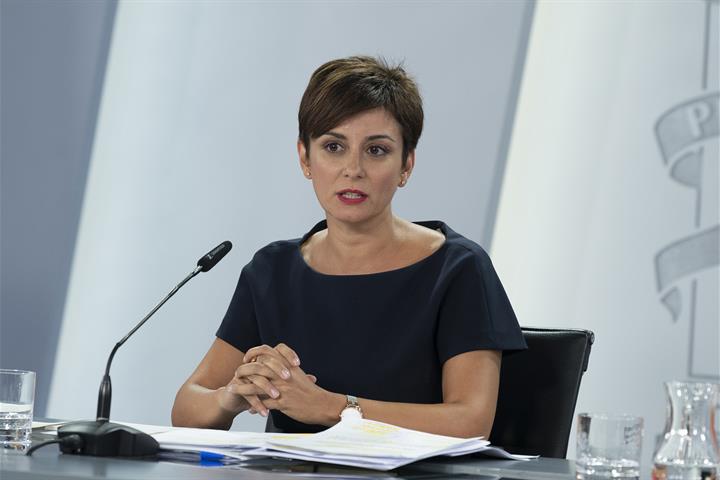Council of Ministers
The Government of Spain improves working conditions for domestic workers
Council of Ministers - 2022.9.6
Moncloa Palace, Madrid
Using a Royal Decree-law, the Council of Ministers has levelled the conditions of domestic workers with those of other workers, a historical demand from the platforms of this group. The text ends the discrimination they suffered and ensures that their work is properly valued. The law responds to a commitment made by the Coalition Government and gives effect to Spain's ratification of Convention 189 of the International Labour Organization (ILO).
The Second Vice-President of the Government of Spain and Minister for Work and Social Economy, Yolanda Díaz, said that the decree makes Spain "a better country that puts the welfare of those who, until today, had been the most forgotten, the most vulnerable working women at the centre of its public action". A group - she added - with unique characteristics: more than a third of these women are over 55 years old, 44% are foreigners, and more than half of them work part-time.
The minister highlighted the feminist nature of the law, as it covers both the most vulnerable female workers and female employers, and also their social value, as it restores rights that law makers had deprived this group of workers of; a violation condemned by the European courts of justice.
Unemployment benefits and other entitlements
 Pool Moncloa / Borja Puig de la Bellacasa
Pool Moncloa / Borja Puig de la Bellacasa
The main item of the decree, as Yolanda Díaz pointed out, is that domestic workers will be entitled to the contributory unemployment benefit and to all welfare benefits in force in the labour law. It will be compulsory to pay contributions for unemployment and to the Wage Guarantee Fund (FOGASA) from 1 October, and compensation cover for workers in the event of employer insolvency is guaranteed.
In addition, the law protects these workers against unjustified dismissal and eliminates the concept of dismissal without cause, insofar as it does not require proof of dismissal. From now on, they will also enjoy full and equal rights to information on their working conditions, and the Executive will put specific training and accreditation policies in place.
Employer bonuses
With regard to health and safety at work, these women are included in the scope of the Law on Occupational Risk Prevention and a study commission with a gender focus is created to deal with occupational illnesses.
Another major item highlighted by the vice-president is that, in addition to the reduction in contributions that currently exists, employers will be entitled to an 80% rebate on contributions to unemployment insurance and FOGASA. In this way, said the second vice-president, vulnerable women workers are protected and, at the same time, the families who need their services are protected.
Actions in the Mar Menor, the Ebro and Sierra de La Culebra
The Third Vice-President of the Government of Spain and Minister for Ecological Transition and Demographic Challenge, Teresa Ribera, has detailed the agreements adopted by the Council of Ministers on the Mar Menor (Murcia), the middle tranche of the Ebro River (La Rioja, Navarre and Aragon) and the Sierra de La Culebra (Zamora).
In all three cases, Ribera stressed the importance of cooperation and coordination between the different administrations to carry out these environmental improvement, prevention and recovery actions.
Mar Menor
The Government will grant 20 million euros in direct subsidies to the town councils along the Mar Menor to improve their sanitation and purification facilities. The beneficiaries are San Javier, Los Alcázares, Cartagena, San Pedro del Pinatar, Fuente Álamo, Murcia, Torre Pacheco and La Unión, with a total of almost 180,000 registered inhabitants, and more than double that number during holiday periods. These towns have major problems in the day-to-day management of their sewerage networks, which are also overwhelmed in cases of torrential rain.
 Pool Moncloa / Borja Puig de la Bellacasa
Pool Moncloa / Borja Puig de la Bellacasa
The vice-president reiterated the priority nature of restoring the Mar Menor after years of deterioration due to dumping from agriculture, livestock, mining and urban development in the area: "The Mar Menor is perhaps the area that has received the most attention, dedication and budget, the most important environmental recovery initiative in which a Government of Spain has ever been involved".
Last year the Priority Action Framework was approved, which has allowed 82 million euros in investments to be committed so far. The total amount to be earmarked until 2026 is 484 million euros, charged to the General State Budget and the Recovery, Transformation and Resilience Plan.
Some lines of action that are being carried out are related to the restoration of legality in the watercourse: "More than 6,000 hectares of illegal irrigation have already been sanctioned and another 1,500 hectares are being processed, and 215 desalination plants and 140 illegal wells have been dismantled", specified Ribera.
Other priorities are the restoration and renaturalisation of the basin, flood risk management, the restoration of abandoned mining ponds or installations, the redefinition of the maritime-terrestrial public domain, the promotion of research, knowledge and monitoring of the area and the conservation of biodiversity and species such as the nacre or the seahorse.
Middle tranche of the Ebro
The Executive will grant 10 million euros to La Rioja, Navarre and Aragon for actions to adapt existing buildings, equipment, installations and farms in the middle tranche of the River Ebro and its tributaries to the risk of flooding.
Teresa Ribera stressed that, although floods have occurred in the River Ebro over the centuries, their recurrence and virulence has intensified due to climate change and global warming: "Specifically, December 2021 was the worst since records began".
Prevention efforts, she said, should aim to reduce the costs of repairing flood damage. In this case, they will affect more than 400,000 hectares of cultivated land, 350 livestock farms and riverside towns and villages in the three autonomous communities, where 51,000 people live.
The actions to be financed include the acquisition of barriers to stop the inflow of water and equipment for its evacuation, carrying out waterproofing and insulation works, expropriation of the closest properties with the greatest risk of flooding, reforms in public infrastructures and urban centres and also the call for competitive grants so that individuals can have resources to protect their façades or their properties.
Sierra de La Culebra
Finally, the Executive will allocate 2 million euros to the emergency restoration of the areas of the Sierra de La Culebra (Zamora) affected by this summer's fires, especially to prevent the erosion of burnt soils.
Support for scientific outreach initiatives
 Pool Moncloa / Borja Puig de la Bellacasa
Pool Moncloa / Borja Puig de la Bellacasa
The Government will contribute 2 million euros to the the construction and equipping of the new head office of the Science Museum of the University of Navarre and a further million euros to the Joint Palaeontology Foundation Teruel-Dinópolis and the Ibercivis Foundation in Zaragoza.
The Minister for Territorial Policy and Government Spokesperson, Isabel Rodríguez, stressed that the three projects have their vocation to disseminate science in common and that this financial support reflects the commitment of the Executive to science and its fundamental role in the development and future of Spain.
Spanish Presidency of the EU in 2023
The Government has analysed the report by the Ministry of Foreign Affairs, European Union and Cooperation on preparations for the Spanish presidency of the Council of the European Union in the second half of 2023.
Isabel Rodríguez explained that more than 1,000 civil servants are being trained specifically to "give the best version of ourselves" and that the various official meetings are already being organised in the venues that will host them, spread throughout all the autonomous communities "to show Spain in its diversity to all EU countries".
Non official translation




